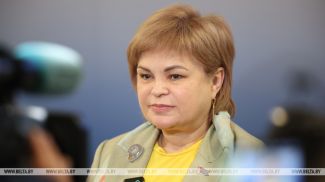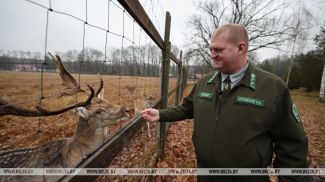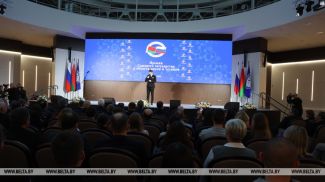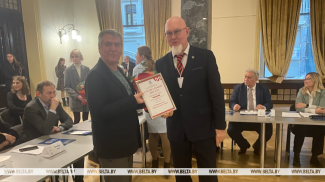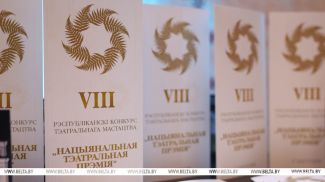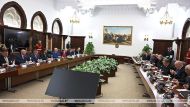
For many years, the hero of our project was a drug addict. Though the thought that this was a dead end never left him, his addiction was stronger. One day, when he no longer had the strength to walk, he crawled to an icon in prayer. That act became his first step toward a new life. Today, he leads a charity center that helps those who have lost hope and are unable to break free from alcohol and drugs. This is the story of Aleksandr Ovchinnikov.
A New Perception of Reality
Those undergoing rehabilitation at the charity center in the village of Gorodnaya, Brest Oblast, are not called patients or clients. To the staff, they are all “students.” Our interviewee, Aleksandr Ovchinnikov, has been here since the day the center opened in 2013.
“Today, I’m the head of a Christian rehabilitation center for alcohol and drug addicts, where I help people just like I once was,” he introduces himself.
He is a middle-aged man. If you passed him on the street, you would never guess he battled addiction for years. His voice is perhaps a little hoarse, but Aleksandr doesn’t smoke – he has left all his addictions behind.
“I’m a happy man,” he admits. “Everything else comes with it: a new perception of reality, freedom. People who use alcohol and drugs try to distort reality, but we bring them back to it through faith in God.”
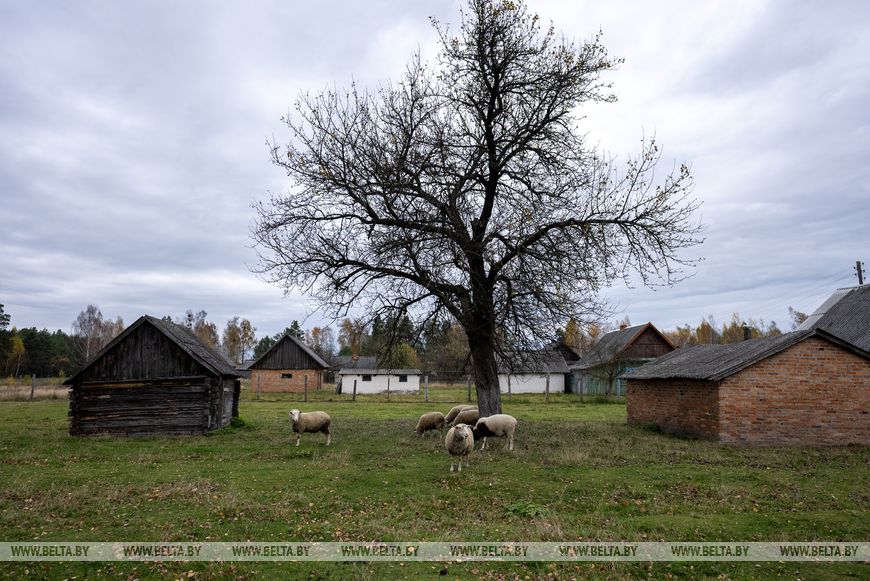
Currently, there are six students at the center. To get in, one need only call the contact numbers. “There’s no advertising; word of mouth usually works. When someone calls, we conduct a phone interview, inviting them to come and see if this is something they need or not. But in any case, we strive to help all drug and alcohol addicts,” Aleksandr Ovchinnikov explains. “Our mission is Christian, based on the values embodied in the Bible. We help people with these values.”
A person makes their own decision
“I’m not a doctor, and we don’t provide medical services,” he emphasizes. “We are a Christian rehabilitation center. In my opinion, alcohol and drug addiction are treated through psychology when the biblical principle penetrates a person’s heart and Christ says to them: ‘This is not a disease, it is a sin. Go and sin no more.’ Naturally, we ‘activate’ the student’s willpower – without their own will, no one can help them. The individual must decide for themselves that they want to complete the program at the rehabilitation center where even smoking is prohibited. If they are ready, we are happy to help.”
The center offers Bible studies and occupational therapy. A key incentive is personal example, where those who have previously undergone rehabilitation share their own failures and successes to guide current students.
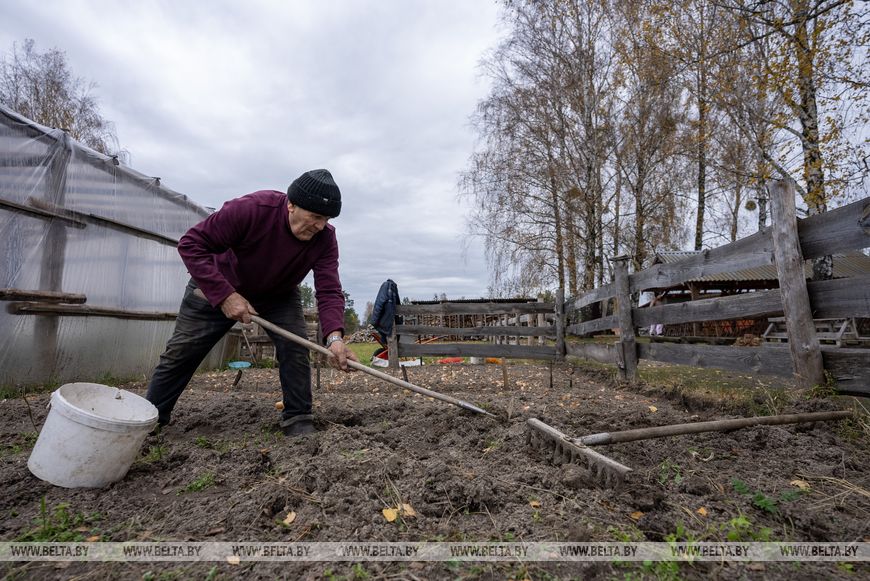
“Strength is in God,” says Aleksandr Ovchinnikov. “With faith, you can move forward. If faith weakens, the likelihood of changing your life circumstances increases exponentially, if not completely.”
He acknowledges that not everyone can be helped. Some spend between a month and six months at the center before deciding they can manage on their own. But on average, 75% of students who complete the full program successfully reintegrate into society, start families, and lead normal lives.
Aleksandr shares a story with a happy ending. Several years ago, a tearful girl called him: “My brother is lying in my home right now. He’s 25 years old. He has terminal cirrhosis. He’s dying.” Aleksandr initially refused, as the center doesn’t accept people who are dying. But the girl insisted.
“I felt her pain and gathered about 10 students who were undergoing rehabilitation at the time. I asked them if they could take responsibility and help. Everyone agreed. People couldn’t abandon someone like them. So they brought the guy to us. Four months later, the doctors reviewed his diagnosis and said he was nearly completely healthy. Today, if you see this man, you wouldn’t believe he was our student. A healthy, smiling young man with a whole life ahead of him.”
Bad Company, Bad Influence
“Around the age of 10, I started running with a bad crowd,” he recalled. “First came cigarettes, then alcohol, and at 13, I tried drugs. At first, it seemed like just fooling around, but then it sucked me in.”
Aleksandr said he never blamed his parents for not keeping a close enough eye on him or for missing something. They always strived to give their son only the best. Perhaps during his teenage years, they were too lenient about what was happening.
“On my birthday when I turned 18, my father stood up and said: ‘You're becoming an adult, and we see the path you've chosen. It's the wrong path, but we can't forbid you from taking it. From this day on, you'll be solely responsible for your actions.’ My parents were right. Through their example, through their entire lives, they showed how one should live. But I didn't listen to them back then,” Aleksandr Ovchinnikov noted.
Then came criminal convictions. His life outside of prison was accompanied by alcohol and drugs. The young man lived like this from age 17 to 30. Once, in a temporary detention facility, an experienced man inmate told him: “You have the chance to give up crime and start living a good life. But there's one problem: you have no desire to. Just know this: when the desire finally appears, the opportunity will be gone.”
“I often recalled those words. I observed religious people I encountered in life, who spoke of God's grace that gives freedom, and about rehabilitation centers. These thoughts kept swirling in my head,” he recalled.
About a month before Aleksandr's 31st birthday, he became very ill: he was going through withdrawal, and neither alcohol nor drugs helped. Then his gaze fell upon an Orthodox icon his grandmother had given him. He crawled on his knees to the icon as he couldn't walk and began pleading with God: “If you exist, show me a way out. I'm 30 years old, and I have nothing to show for my life.”
“I wanted to retreat from the world and join a monastery, but I didn't know where to find one,” Aleksandr said. “I turned to my brother's wife, who, unlike me, had internet access. She gave me a list of phone numbers, and I called a center located in the village of Boroviki, Svetlogorsk District. They invited me for an interview. I went there in July 2012. I saw the living conditions, recognized some familiar guys, and decided to stay.”
Behind every man stands a woman
During the final stage of his rehabilitation, Aleksandr Ovchinnikov met his future wife. The center was preparing to celebrate the opening of a new branch of the Vozvrashchenie mission in the town of Gorodnaya. Builders and clergy had been invited. Food needed to be prepared for 150 people. Aleksandr, who was working in the kitchen at the time, was sent three girls from Baranovichi to assist him. One of them took charge of the cooking:.
“When I was showing Irina the kitchenware, one of the staff members told her: ‘See what kind of guys we have here. This is Aleksandr his rehabilitation program is ending soon.’ It was love at first sight. After she left, I got her phone number from an acquaintance and called her.
Aleksandr recalls courting his future wife for an entire year. He prayed and fasted. During one of their phone conversations, she told him directly: ‘If you're hoping for something, you might as well not. We can only be friends.’ But then fate intervened. They enrolled in a Christian school together and started dating. By that time, Aleksandr was working with ceramics and would give various pottery pieces to his future wife. And she, returning home, would show the gifts to her older sister, saying: ‘There's this guy. He keeps giving me all these little pots.’
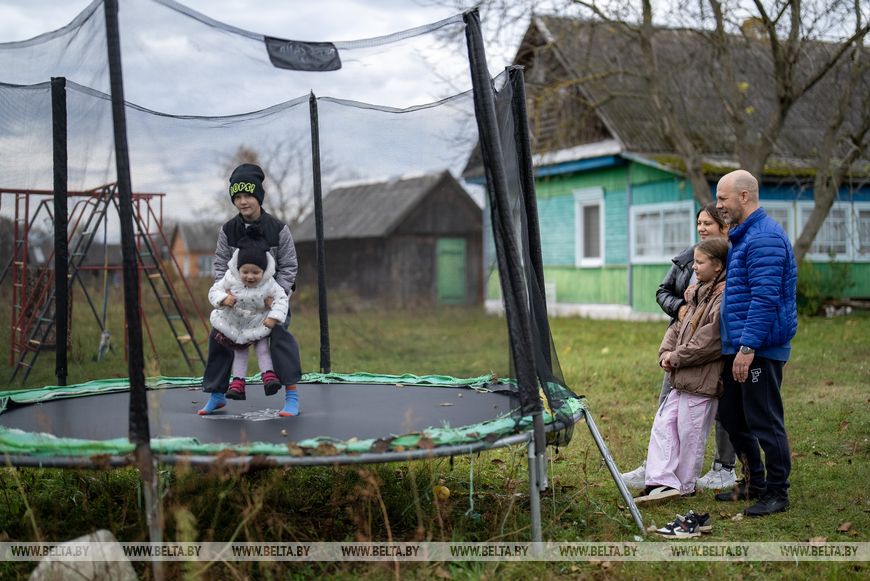
"That's how the first year passed, and in the second year, Irina and I prayed together for her parents to bless our relationship,” Aleksandr said. “They needed time to accept our relationship. Here was some older guy, with a past, who had moved from Bobruisk to a village where he was doing who-knows-what at a rehabilitation center. No place of his own, no prospects for the future. We waited a year for Irina's parents to see that we were serious. After that, they gave us their blessing, and to this day we have a very good relationship with them.”
“My family gave me a feeling that I am needed and also a sense of security,” Aleksandr said. “A person should have a place where they can come with any problem and be understood, comforted, supported, and kept from losing heart. For me, that place is my family.”
Aleksandr says he tells his children about his youth if they ask, but without going into details. And he simply doesn't answer some questions:
“There are people who hide the past from their children, and when the younger generation accidentally learns about it, it leads to bad consequences. I don’t hide the fact that I had problems with drugs and alcohol in my life, but it’s important to me that my children see the real me, that they understand that with God’s help I can now be an upstanding citizen of Belarus. This is what I urge my children towards as well.”
Aleksandr tells a real story about two priests, where one came to visit the other. The host had more than ten children. He had managed to marry off many of them. And this large family had no problems; all the children supported their father in his ministry, they had good jobs and prosperous families. The visiting priest asked the host: “How did you achieve this?” The host took him to a gazebo where there were four indentations in the ground and said that his family's wellbeing was right there. “What is it?” asked the guest. And the host replied: “These are the marks from our knees - mine and my wife's. We pray for our children constantly.”
The desire to do good
Aleksandr’s wife Irina explains why she kept her future husband at a distance for a year:
“He wasn’t my type. That’s why I didn’t really respond to his attention. Yes, I helped prepare the holiday table, did my job, and left... But during my interactions with Aleksandr, I understood that he had a tremendous desire to be useful to people, to do good. Later, during one of our phone conversations, I felt that no one but me would be able to help him realize his good qualities. As a believer, I said to myself: ‘God, if you have chosen me to help Aleksandr, I am ready’.”

The woman admits that her future husband’s past did not frighten her. But when she was about to get married, her mother asked her to tell her a little about her chosen one:
“She found out that Sasha was finishing a rehabilitation program and immediately started crying: ‘No, my dear! I didn’t raise you for this’. My friends, both male and female, were very surprised and asked if I understood what I was doing. But from the moment I made the final decision to get married and move from a big city to the village, I have never regretted it for a minute. I had this understanding: wherever my husband ends up, wherever he is helping people and doing good, I need to be by his side.”
This September, the couple celebrated ten years of marriage.

“Over these years, Sasha has learned to do many things he couldn’t do before, even driving a car,” Irina shares. “When we visited his parents a year after the wedding and he was behind the wheel, my mother-in-law hugged me and said, ‘Irina, what have you done with my son? He was never like this before’.”
Japanese technique in a Belarusian interpretation
The course at the center run by Aleksandr Ovchinnikov lasts for one year. Upon completion, participants receive a special diploma certifying the end of the rehabilitation program and a book with recommendations on how to live in society.
“When I myself was at the final stage of my rehabilitation, I came to the village of Gorodnaya,” Aleksandr recounts. “This place has been famous for its potters since the 15th century. And I needed something to do. The center’s management suggested I try making pots. My first attempts only resulted in me getting completely covered in clay. I thought to myself: ‘Why did I even get into this?’”
But there are no other entertainments in the village. A year later, Aleksandr was registered for the 4th International Potters’ Plein Air. Masters from different countries gathered there, some of them of world-class level.
“During the event, I made the final decision that I would pursue pottery,” Aleksandr said. “They gave me a diploma then, although I was ashamed to take it. Later, the thought came to me that I had received it as an advance, and I was absolutely determined to prove myself worthy of it.”

And that’s what happened. By 2018, this activity turned from a hobby into a full-fledged source of income for the whole family. In 2018, the Ovchinnikovs even traveled to the International Potters' Plein Air held in Skopin, Russia, where Aleksandr took second place among 230 participants.
Pottery is still used at the center as a form of occupational therapy. Aleksandr is happy to show his creations: vases, Turkish coffee pots, pancake pans, small bowls, and, of course, pots. Aleksandr also demonstrates his signature ceramics with wood elements. It’s a Japanese technique, but with a Belarusian interpretation. For its creation, he used bog wood, clay from Mir, and… milk.
“This is called ‘milking’ - when the finished piece is dipped in milk and then fired at a temperature of 300-350 degrees Celsius. After this, the piece acquires a distinctive dark shade and becomes impermeable to moisture. All the pottery we make is functional.”
As a result of Aleksandr’s passion, his entire family is now involved in pottery, which is a natural progression. The most important thing in life is leading by example.
Aleksei Gorbunov,
photos by Kirill Pasmurtsev,
7 Dnei newspaper





